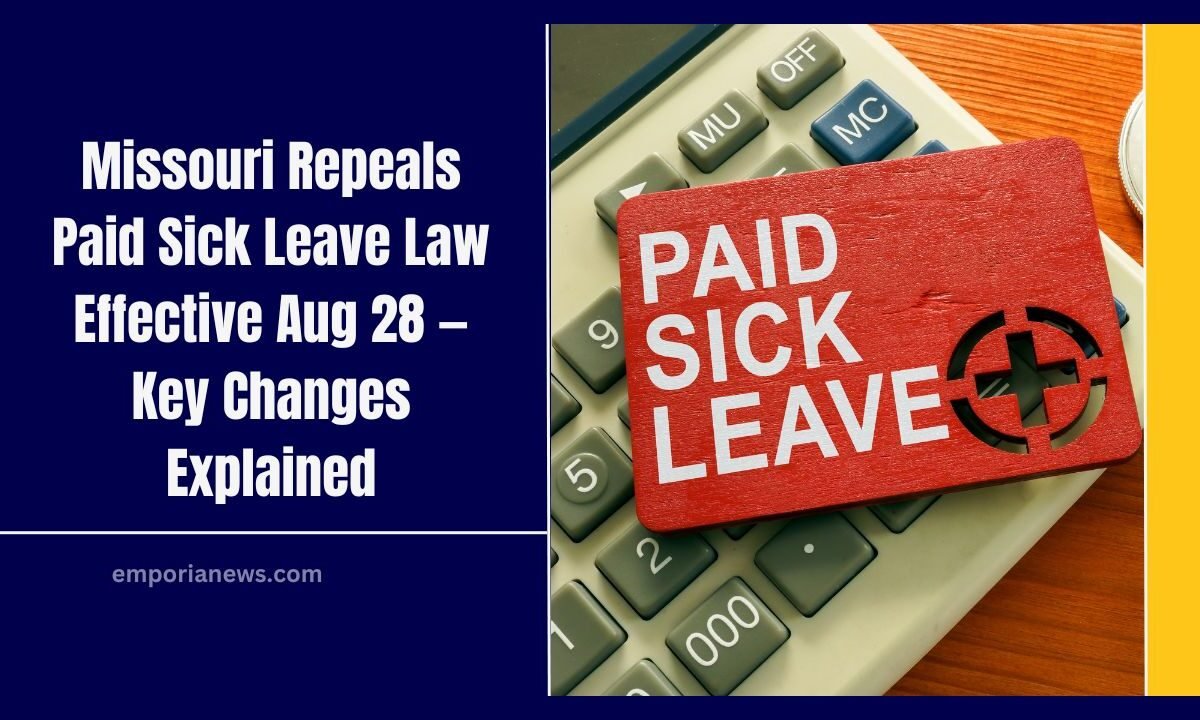Missouri’s newly enacted paid sick leave law, approved by voters just nine months ago through Proposition A, will be officially repealed on August 28, 2025.
Governor Mike Kehoe signed House Bill 567 in July, rolling back its mandates — a significant policy shift that has shocked many.
What Proposition A Established
| Feature | Original Law Details |
|---|---|
| Effective Start Date | May 1, 2025 |
| Accrual Rate | 1 hour paid sick leave per 30 hours worked |
| Use Cases | Illness, medical care, caregiving, emergencies, domestic violence, stalking |
| Annual Usage Cap | Up to 40 hours (small employers), 56 hours (large employers) |
| Carryover | Up to 80 hours into next year |
| Minimum Wage Impact | $15/hour by 2026; annual CPI-based increases thereafter |
What’s Changing on August 28, 2025
- Paid Sick Leave Mandate Ends: Employers no longer required to provide earned sick time.
- Unused Leave: No legal requirement to honor unused paid sick leave after the repeal date — any continued benefits are voluntary.
- Minimum Wage Freeze: Keeps $15/hour wage increase intact but eliminates future inflation-based adjustments scheduled from 2027 onward.
- Employer Discretion Restored: Companies may choose to:
- Retain full or partial sick leave policies,
- Convert to standard PTO systems,
- Or eliminate leave offerings entirely,
depending on their preferences and business needs.
Interim Period: What Employers Must Do Before Repeal
From May 1 to August 27, 2025, employers must fully comply with Proposition A’s obligations, including:
- Tracking accrual rates,
- Providing earned sick leave for qualifying reasons,
- Posting required notices,
- Adhering to anti-retaliation and documentation rules,
- Managing carryover and usage parameters.
After August 28, employers need to communicate clearly how the transition affects employees and update handbooks, notices, and internal policies accordingly.
Controversy and Public Response
The repeal has drawn strong criticism from labor advocates, who decry it as ignoring voter intent and harming low-income workers and public health.
Advocates label it a “betrayal of working families”, arguing sick leave is a basic safety net, especially for those in hourly or service jobs.
Some groups are already pushing a constitutional ballot initiative for 2026, aiming to lock paid sick leave benefits into Missouri’s constitution to prevent future repeal by lawmakers.
On the other hand, business groups justified the repeal by calling the mandates an undue burden. The repeal was accompanied by broader tax reforms and relief measures targeting small businesses and families.
Missouri’s decision to repeal its voter-approved sick leave law reflects a rapid shift in labor policy and a rollback of worker protections.
Beginning August 28, 2025, mandatory paid sick leave and planned inflation-based wage increases become optional. Employers gain flexibility—but workers face reduced job and health security.
The outcome may hinge on future ballot initiatives that could enshrine these benefits permanently in the state constitution.




